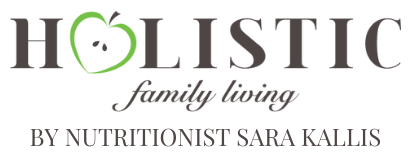What is health? The World Health Organization defines health as “a state of complete physical, mental, and social well-being and not merely the absence of disease or infirmity.”
However, health is rarely fixed but instead is a fluid and ever-changing state reflecting our daily lives. Health is about maximising our balance and vitality in body, mind, and spirit.
Disease and illness occur when there is a disruption, aberration, and/or blockage to the natural balance and flow of life that results in one or many symptoms.
So how do you attain and maintain healthy balance and vitality in body, mind, and spirit?
There’s more to healthy living than simply eating healthy food, exercising, and getting enough sleep. Many people have their own versions of principles (or pillars) of health. Here are the ones I live by and aim to demonstrate, provide, and instil in my children:
- Food
- Water
- Movement
- Hygiene
- Thoughts
- Sunlight
- Air
- Relationships
- Security
Food
Eat as close to nature by consuming mostly whole foods such as fruits, vegetables, nuts, seeds, whole grains, and protein (legumes, eggs, seafood, poultry, and meat). Eating as close to nature means looking for the shortest supply chain (i.e. the food’s point of origin to your plate) with the least amount of processing (e.g. additives, preservatives). Ideally, you want to buy local, fresh, and organic (where possible).
Water
Water is an essential nutrient for life. We can only last about three days without water. Approximately ~60% of the human body consists of water. Water is required for digestion, absorption, transportation, and elimination. It helps to regulate our body temperatures and is the medium in which all biochemical reactions within the body occur. It is important to drink plenty of fresh, filtered water daily. A good rule of thumb is to consume 1 litre for every 22 kilograms of body weight per day.
Movement
Physical activity benefits every single body system. It helps our digestion, sleep, and energy levels. Aim to move your body for at least 30-45 minutes each day, even if it is just going for a walk.
Hygiene
Good hygiene practice helps protect against infectious diseases, prevents infections, and protects against decay (e.g. dental hygiene).
Thoughts
Thoughts create our reality. Healthy thoughts support healthy habits. Having a grasp on our mental and emotional well-being and self-limiting beliefs has a profound impact on the rest of our lives.
Sunlight
Regularly getting out in the sun is crucial for helping to regulate our circadian rhythm and is our primary source of Vitamin D. Aim for at least 20-30 minutes outside per day.
Air
Ensure you are getting access to clean, fresh air regularly. Indoor air within many homes, offices, and cars is stale, lifeless, and can be filled with volatile organic compounds (VOCs). Sources of VOCs include paint, carpet, vinyl flooring, upholstery, air fresheners, cleaning products, cosmetics, fuel, smoking, cooking, and burning wood.
Short term exposure to VOCs may result in headaches, dizziness, worsening of asthma symptoms, or eye, nose & throat irritation. Chronic exposure may lead to cancer, liver/kidney damage, or central nervous system damage.
Ways to ensure adequate air quality include:
-
- Get outside and breathe fresh air daily
-
- Keep your windows open as much as possible
-
- Purchase indoor plants, which help to purify the air such as Peace Lilies, Snake Plants, or Golden Pathos (Devil’s Ivy)
-
- Breathe deeply during the day, whether it’s upon waking or a midday meditation, or before bed.
Relationships
We are social creatures and crave community and a place to belong. Healthy relationships begin with the relationship we have with ourselves and extend to our family, friends, and the broader community.
Security
Safety and security are some of the most basic human needs, as per Maslow’s Hierarchy of Needs. Do you have a safe place to live? How is your financial health? Are you able to meet your and your family’s most basic needs? If not, this is the first place to start.
Sleep
Sleep is a dynamic process for regeneration and repair. It is best to aim for 8 hours of sleep per night for adults and at least 9 hours for school-aged children.

